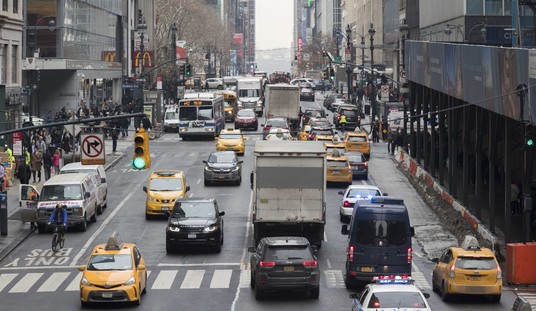If you listened to any White House official in recent months, the administration is ostensibly bullish on the American economy.
“I’m proud of saving the economy,” Barack Obama told CNN’s Fareed Zakaria over the weekend. Obama’s noteworthy use of the past tense in this comment indicates that he believes his work here is largely done. In spite of data that indicates American wages continue to stagnate, the president has repeatedly claimed that wages are on the rise – including on Monday when he revealed his $4 trillion budget proposal.
“I want to work with Congress to replace mindless austerity with smart investments that strengthen America,” Obama insisted on Monday. He pledged that he would not accept a budget that enshrines sequester cuts (which he both proposed and signed into law) as an indelible feature of future budgets.
But for all of the president’s rhetorical optimism about the future of the American economy, the text of his budget proposal indicates that the White House is far more pessimistic about the prospects for imminent growth.
“In a budget proposal unveiled on Monday, the White House cut forecasts for an array of economic variables, depicting less growth, weaker inflation and lower interest rates than officials expected only a year ago,” a Reuters report observed.
“In the 21st century, real GDP growth in the United States is likely to be slower than it was in earlier eras,” the White House’s proposed budget read.
Obama’s latest budget proposal is a document that seeks to establish support for preparing the nation to accept a future in which the American pie grows smaller and smaller with each passing year.
The economic vision presented in the plan is all-the-more pessimistic given that it incorporates the impact of higher spending on infrastructure and education, as well as overhauls of tax and immigration laws. Many of those proposals are unlikely to pass the Republican-controlled Congress.
Even with these measures, which are aimed to counter rising income inequality, weaker growth would leave the economy about $500 billion smaller in 2020 than the administration projected a year ago. The administration expects the share of national income going to labor – as opposed to capital – to hold near historic lows for years to come.
An aging population that is less inclined to work could help limit long-run economic growth to around 2.3 percent annually, the budget says, a rate that would be roughly a percentage point lower than the average since World War Two.
Reuters contended that this is a document designed to appeal to progressives who advocate increased public sector spending in order to counter the effects of GDP and wage stagnation. And while the White House projects that unemployment could decline to 4.9 percent by the time Obama leaves office, that does not seem to be linked to a corresponding increase in the labor participation rate, which is today as low as it has been in nearly 40 years.
For a president who once campaigned on insufferable vagaries like “hope,” the substance of his approach to governance looks far more like resignation in the face of inescapable decline.








Join the conversation as a VIP Member